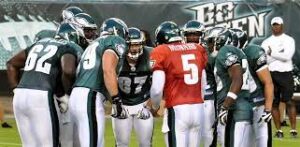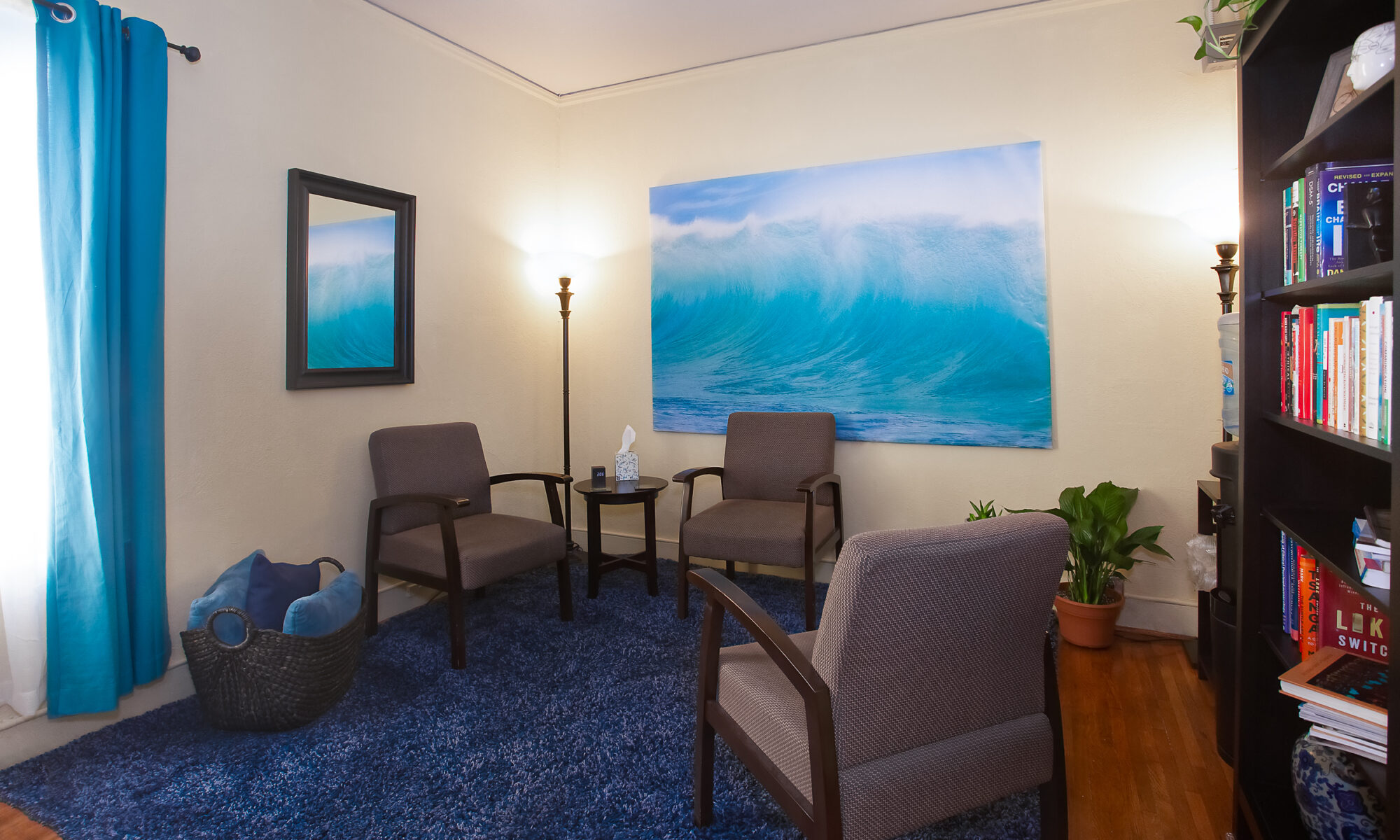
I am not a big sports fan, which is odd considering how I regularly bring up “huddles” in my couples therapy sessions. But when I do this, I assure you we are not really talking about football or soccer! What we are talking about is teams, specifically how a team wins, and the huddle, which I will discuss in this article, is a key element in any team’s approach to winning.
We didn’t used to think of couples in a relationship as a team–the individuals were more like employees in the same company, but each in charge of different departments. In the old days, men made the money and doled out discipline to the children, while women managed home and child care. While this worked at times to keep a home and family going, both men and women suffered because individual needs were not part of the overall plan (this is why so many men got individual needs met outside the marriage, while women would take sedatives).
Today, we have mostly moved beyond that stilted and misogynistic model, forging a new version of what home and family looks like and how they can thrive. Many of the relationship experts, including the Gottmans and Stan Tatkin, have stressed that today’s couples have to work like a team rather than as co-employees. I want to explore what that means for couples, and why it is beneficial to them both as a couple and as an individual . Are you ready? Hut, hut, HIKE!
WHAT IS A HUDDLE? I’ll be honest with you–I had to look this one up. While there is the definition I use with couples, I thought I should at least verify that what I tell them is accurate before writing an article about it! So here is how Webster’s defines a huddle as applied to football:
huddle: to gather away from the line of scrimmage to receive instructions (as from the quarterback) for the next down
What does this definition tell us about huddles? That they are a gathering away from where the action is happening in order to make a plan for how to move forward. In this definition, the instructions come from the quarterback, but in a relationship all members act as quarterbacks. I will add to this the purpose of making this plan–to win the game by getting closer to, and ultimately over, the goal line.
One main question addressed in a huddle is: “What do we do next?” Maybe the team starts by identifying what did not work previously, but there is little time for pointing fingers or blame–the focus is on what’s next! In other words, let’s look briefly at what didn’t work and then decide what might work now. The team does not get distracted by anything that could pull them away from their main objective: to win. And, judging by their continued use by football and soccer teams worldwide, huddles work.
WHY DO THEY WORK? In his book In Each Other’s Care, Dr. Stan Tatkin says the following about relationship success:
“People make their relationship difficult when they do not orient to a two-person psychological system full of collaboration and cooperation. That lack of a two-person orientation is at the center of all difficulty in couple unions.”
What is another name for a two-person psychological system? A team! There may not be as many members in a relationship team as there are on a sports team, but the point is that the rules work across the board. Here is my understanding of these rules:
- The needs of the team supersede the needs of the individual members: The team (relationship) always comes first.
- The blame game and defensiveness serve no purpose other than to stop forward movement: Avoid blame and defensiveness.
- If you want your team to win, the individual members must be strong and care for their individual development: Be accountable for what’s yours.
- If one person messes up the plan, the whole team suffers; if one person succeeds, the whole team benefits: You either win or lose together as a team.
- The focus is on what to do next to gain or re-gain ground, always with the intention of winning: The important question to explore is “How can we do better next time? What does our relationship need to thrive?”
What I love about huddles is that they are quick and purposeful–no need to talk until 4 in the morning! They work because they focus on what did work and what will work next. Can you imagine if that was the priority in the conversations you have with your partner(s)?
HOW TO DO HUDDLES IN YOUR RELATIONSHIP: One of the biggest challenges couples therapists face is how to get their clients to use the skills they develop in sessions at home. In fact, John Gottman wrote about this nearly 25 years ago in his book The Marriage Clinic, describing how only about 35% of couples who do therapy experience meaningful positive changes, but after only a year, 30-50% of these couples relapse into the old patterns.
Given that, the challenge I face is two-fold:
- Making a tool or skill appealing to couples so they will use it
- Looking for any emotional obstacles to using the tool or skill (a topic for a whole article in itself)
Regarding the appeal of huddles, I approach this challenge by first looking for times when a couple is already doing them without knowing they are doing them. Any instance when we have been pressed for time and have to make a decision quickly is an instance where we have likely used the huddle, quickly exploring these things:
- What do we currently know?
- What do we need to do right now?
- How are we doing to do it?
When decisions need to be made quickly, there is little time for blame, regret, or criticism! You come together and make a plan to get back on track as soon as possible–this is a version of the huddle! Bringing awareness to, and reinforcing, behaviors you are already doing successfully is one way to ensure a tool will be used outside the therapy room.
Secondly, I spend some time exploring how good it feels for couples on the other side of the huddle–when they have their new direction and are headed there together, connected. Emphasizing how the outcome will feel good is a powerful way to motivate us to do something difficult. Without a desirable sense of reward, couples will not use the tools, period.
Lastly, it is my job to look for anything in a client’s history or relationship dynamic that will get in the way of them practicing new skills. This could be resentments, past trauma, depression, or lack of commitment to the relationship. If one or more of these factors are identified, I will either do individual work with them in the couples session, schedule an individual session apart from the couples work, or refer them to outside individual therapy. This is critical! If the obstacle is not addressed and removed, the work will atrophy at home.
***
Here is the secret I hope my clients will experience for themselves: doing huddles at home is fun! Or at least it can be. I recommend practicing them on everyday situations where there is no anger or resistance. Then you will be ready when the stakes are higher. As an example, let’s say that you are going to the movies, but when you get to the theater the film you want to see is sold out. You could do a quick huddle to decide what to see instead by using the three questions:
- What do we currently know? What movies are there still tickets for and when do they start?
- What do we need to do right now? Save the evening! Choose an alternate movie and buy tickets, or go somewhere else.
- How are we doing to do it? Agree on a film we have not seen and both want to see, and laugh off the fact that we did not get tickets beforehand.
When you are dealing with a heavier issue or conflict, using the same process can actually lighten the weight, ensuring that partners stay regulated and connected. When regulated and connected, couples can get to the other side of any problem.
Remember, if you don’t make it something that you both enjoy or benefit from, you will not do it–so imagine how you will feel towards each other when you have successfully navigated a difference in this way. I think anyone can agree that this feeling is preferable to anger, resentment, and hurt! And just like the sports teams that huddles, practice, practice, practice.
Huddle up!
